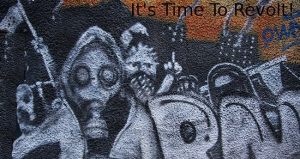On the 22nd January 2019 after almost forty years in prison the Parole Board considered the case for either my release or continued imprisonment. In the case of life sentence or indeterminately sentenced prisoners once such prisoners have been detained for the length of time originally recommended by the judiciary or Secretary of State, in my case 25 years, then the Parole Board has a statuary and legal obligation and responsibility to review the case for either the release or the continued detention of such prisoners. At three previous parole hearings my release had been denied by the Parole Board on the grounds that I was a “difficult and anti-authoritarian” prisoner, and insufficiently obedient to prison authority; my actual risk or danger to the public, the prime official criteria for denying the release of life sentence prisoners, was never cited as a reason for my continued imprisonment.
At my parole hearing on the 22nd January all of the professionals employed to assess the potential risk of prisoners the community, prison psychologists, probation officers, etc., all provided evidence stating that my actual risk to the community was either minimal or non-existent and that I could be ‘safely managed’ outside of prison. My lawyer informed the parole panel that the three chief criteria determining the ‘suitability of release’ of life sentence prisoners [has the prisoner served a sufficient length of time to satisfy the interest of retribution?; does the prisoner represent a minimal risk to the community?; can the prisoner be safely managed in the community?] were all confirmed in my case and therefore there was no real lawful justification for my continued imprisonment, especially as I remained still in prison almost fifteen years beyond the length of time originally recommended by the judiciary. The issues raised by the parole panel were not in fact my potential risk to the community or potential for violent behaviour, all of which had been assessed by the system professionals who gave evidence at the hearing and who unanimously attested that my risk of either violent behaviour or risk to the community was minimal; the main concern of the parole panel was my propensity to challenge prison authority and my association with radical political groups on the outside, specifically Anarchist Black Cross. Representatives from the London Probation Service informed the panel that all of the groups that I was associated with were lawful and none were associated with illegal activity, and in terms of my relationship with the prison system whilst I continued to question and challenge what I perceived as abuses of power, I had not been involved in violent protest actions against the system for over twenty years.
At the conclusion of the parole hearing the panel announced that it would deliver its decision regarding my release within fourteen days. By law parole panels must deliver decisions within fourteen days of hearings.
On the fourteenth day following my hearing the Parole Board claimed that it had not in fact concluded the hearing on the 22nd January but had “adjourned” it and would conclude with a “paper hearing”, when I and my lawyer would not be present, on the 20th February. They also requested additional information from the probation officers responsible for my post-release supervision concerning the conditions and rules of that supervision. The probation officers subsequently provided the Board with the information, and reiterated that in their professional opinion I could be safely managed and supervised in the community.
On the 20th February the Parole Board then claimed that they had “deferred” the “paper hearing” because one of the Board members considering my release had decided to go on leave. In early March in response to inquiries from the Probation Service regarding a parole decision, the Parole Board said that they were in the process of
“finalising” their decision.
What was becoming increasingly apparent was that the Parole Board simply did not want to make a decision, or at least a decision authorising my release, which placed them in something of a quandary.
Confronted by the evidence and recommendations of system professionals such as probation officers and prison-hired psychologists who had all stated that there was no public protection justification for my continued imprisonment, the Parole authorities were denied a legitimate legal cover for my continued detention, and obviously were extremely reluctant to openly declare the true reason for their desire to deny my release – a determination to continue my punishment for ever having dared to fight and challenge the prison system, and my refusal to compromise or surrender my political integrity and spirit. In reality, when considering the release of life sentence prisoners one criteria is given absolute priority over all others, and it certainly isn’t “public protection” or the propensity, or not, of the prisoner to criminally re-offend. The most fundamental criteria governing the release decision of life sentence prisoners is the absolute obedience of the prisoner to the authority of those enforcing that imprisonment? Essentially, prisons exist as instrument of social control to tame the rebellious poor and condition them into total obedience to the system; “rehabilitation” is simply a veneer used to legitimise an institution that is intrinsically brutal and inhuman.
Extremely high levels of “re-offending” and re-imprisonment illustrate just how ineffective prisons are as instruments of genuine “public protection”. What actually influences and determines Parole Board decisions is more the “model prisoner” inclination of the prisoner being considered for release than whether they represent a genuine “risk to the public” or are likely to “re-offend”. In my own case, therefore, whilst the Parole Board was probably satisfied that my actual risk to the ordinary public was either minimal or non-existent, and after being imprisoned for almost forty year the “interests of retribution” had been adequately satisfied in my case, nevertheless my continuing propensity to challenge the authority and power of those imprisoning me, in the eyes of a white middle class Parole Board, rendered me “unsuitable for release”.
In 1980 I, along with two other men, was imprisoned for the killing of a fourth man during a drunken gathering of petty criminals in a South London council estate. Imprisonment for a minimum of 25 years I was cast into a jail system characterised by naked brutality and violent repression that dealt with “difficult” prisoners in an often murderous way. An already emotionally and psychologically much damaged young state-raised prisoner and now with absolutely nothing to lose, I responded to the violence of the system with extreme resistance. In 1983 I was convicted of taking a prison governor hostage and had an additional ten years added to my sentence; I was also consigned to solitary confinement for four years in conditions of total de-humanisation. I continued to resist and fight back, and was frequently brutalised, but also experienced deep political radicalisation and came to see my struggle against the prison system as part of a much wider struggle against state oppression everywhere. For the next three decades of my imprisonment I committed myself totally to the struggle for prisoners’ rights, and as a result was labelled by the prison authorities as a “subversive and difficult prisoner”. In 1992 I managed to escape and with the assistance of political supporters outside I lived and travelled widely around Europe before being re-captured two years later. In 2007 I was finally transferred to an open prison, supposedly as preparation for release, and worked each day in the outside community as a literacy tutor for adults with learning difficulties. Then 12 months later I was “Down Graded” back to a high-security prison following a report by a prison probation officer that I was linked to what he described as a “terrorist organisation”. A subsequence official investigation established that the organisation concerned was in fact a completely lawful prisoner support group [anarchist black cross], and I was eventually returned to an open prison. 12 months later I failed to return to the prison following an outside shopping trip and following my apprehension was again “Down-Graded” to a high-security jail. Eleven years later I remain in “closed conditions”. Devoid of a genuine “public protection” justification for my continued imprisonment that imprisonment is continued purely because I am perceived by the establishment as unbroken and defiant, and motivated by a political belief system that condemns me irredeemably as the other.
The reality is that although the Parole Board has little choice but to appear to review my continued imprisonment, it actually has no intention of agreeing to my release, at least not while I retain even a semblance of defiance and political integrity; my actual perceived risk or danger to the community, which has been assessed by system professionals as basically non-existent, is no longer even evoked by the Board as justification for has now become my unlawful detention.
On the 18th of March the Parole Board finally delivered its decision that it prefaced with the admission: “All the professionals support your release on licence and not consider your risk to the public to be imminent”. Martin Jones, CEO of the Parole Board, recently stated to the media: “We have a statutory release test that we have to apply in every case. And that release test is whether the parole applicant’s continued detention is necessary for the protection of the public”. In my case, however, the Parole Board decided that I would remain imprisoned not in the interest of public protection, but apparently because a parole hostel intended to house and “supervise” released long-term prisoners had not given a definite confirmation that it would provide and accommodation and “supervision” in my case for a longer period of time than usually required for released prisoners. In fact, the hostel concern, the London Probation Service and the Multi Agency Public Protection Agency had all assured the Parole Board that following a specific length of time in the hostel my continued accommodation there would be assessed and an extended period of time provided if considered necessary. This was ignored by the Parole Board who obviously were determined to find ANY semblance of a reason or justification to deny my release. It was subsequently revealed that there was a double-edged reason for the denial of my release; essentially my refusal to submit mind, body and soul to the authority of the prison system was the prime reason I was considered “unsuitable for release”, but for some time there had been tension between the Parole Board and Justice Ministry because the formed had wanted the period of time that released life sentence prisoners were held in parole hostels significantly extended, whilst the Justice Ministry claimed that a huge demand on places within a restricted number of such hostels and a general lack of resources at their disposal made longer-stay hostels uncreatable. The refusal of my release was clearly intended by the Parole Board to send a message to the Justice Ministry that unless post-release life sentence prisoners are “supervised” for a significantly longer period within parole hostels, and the resources provided for that, then more of them would simply remain incarcerated, regardless of whether they remained a risk to the community or not. So officially my release was denied after 40 years not because I’m considered a risk or danger to anyone, but simply because I’m now held as a virtual hostage in a conflict between two state agencies. This amounts to unlawful imprisonment and will now be judicially challenged.
Britain now currently has the highest population of life sentence prisoners in the whole of Europe and as the social and political climate here becomes increasingly more repressive and retributive that population of the civil dead will continue growing.
John Bowden














